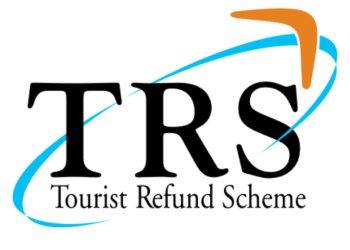Purchasing travel insurance when you go overseas is an extra cost that is often overlooked, but there are plenty of horror stories about what can go wrong if you don’t have it and need to be evacuated, hospitalised or assisted following a robbery or make a travel insurance claim. Once you’ve made a decision that it may be a good idea to have some level of protection, there are a number of factors to consider, which we have covered in an earlier piece.
So. Once you’ve read all the fine print and paid your money, you go off on your holiday with peace of mind, knowing that you’re covered if something should go wrong. Right? Not necessarily. Even if you’ve read all the fine print, you need to be aware of a few important points to ensure that in the event of your needing to make a claim, you don’t have it rejected.
Making a travel insurance claim
An Insurance Company is not a charitable institution. It’s a business and they will not pay out on your claim unless they feel it is indisputable. You need to make sure that you:
- Read the fine print and every single exclusion, even if there are ten or more pages of that fine print. There will be multiple lists of definitions and exclusions as well as the benefits that cover what you are protecting.
- You must have a valid license to drive/ride the type of vehicle if you hire a car or rent a bike. This could be your home country or an international licence. If you aren’t licensed, your travel insurance claim for any accident will most probably be refused.
- Have all documents ready, scanned originals etc, tickets and boarding passes, police reports as well as any other relevant documents.
- A clear timeline of the situation. Forms, especially those for online submission may have (very) limited space available for describing the situation.
- Be prepared to wait and follow up to have the claim attended to. Respond quickly with additional information required to support your claim if you are asked for thiis.
- If you are unhappy with the result of your claim (i.e. it is rejected or you are not satisfied with the quantum or type of compensation), you do have the right to appeal. However, you do need to be clear about the reason you feel dissatisfied and provide supporting evidence.
- If your appeal is rejected and you are still unsatisfied, there is usually an overseeing body to whom you can file a complaint. Only make a complaint at this level if you have exhausted all other options. You must also have all the required supporting documents.
Emergency situations
- For a medical emergency or other situation requiring immediate assistance, make sure you have the company’s contact numbers easily accessible. Call the representative immediately as most of the larger companies are able to assist at that point, rather than expecting you to sort things out yourself and then submit your claim.
- Sending yourself an email with all the information is a useful way of making sure it’s not lost. (Assuming you do have access to the internet to retrieve it!)
Getting a Police Report
It’s important to know that obtaining a police report may be difficult in some countries. Some of the issues you may face include:
- If snatch theft (or your particular issue) is common in that location, you may face difficulty persuading the officer to take your report. This may be because it is so common and the perpetrator is seldom caught, or the persuasion may have a financial consideration suggested or hinted at. It is not advisable to offer ‘financial consideration’ or you may end up on the wrong side of the law.
- It may be helpful to call the local representative of your insurer who can advise and hopefully assist you, depending on the situation.
- Making a report will not be quick. Be prepared a long wait of least a few hours.
- The person taking the report may not speak your language and the procedures are almost certainly different from what you are used to at home.
- You may be fingerprinted. (No, I don’t know why either, but it’s not uncommon is some countries)
- The report may not be in English or the language you require for your claim. This will need to be translated, at your expense.
- You will need to pay for a copy of the report. This payment should have a receipt.
- Keep a photocopy (and a copy in the cloud) of documents (passport, credit cards etc and serial numbers). This makes it easier to provide these details for your report.
- If your claim is a medically related or a damage or travel delay claim, many of the above points will also apply.
To sum up
On balance, we’d still suggest that travel insurance is useful and good for peace of mind. Ask around your friends for feedback on their own experiences. The unexpected can and often does happen and a medical evacuation to your home country or theft of some or all your belongings could have long lasting financial consequences as well as emotional effects.
Anecdotal evidence suggests that the response from even established companies, whether local or international, may vary, depending on the situation. Feedback from personal contacts suggests that larger or International companies are usually responsive to settling cases quickly. However, there are insurers which will delay the claim on for months for various reasons to deny a claim. So be aware it does happen, even with an international company.
Economy Traveller would be happy to have comments from travellers with stories to report – be brief!









This Post Has 0 Comments